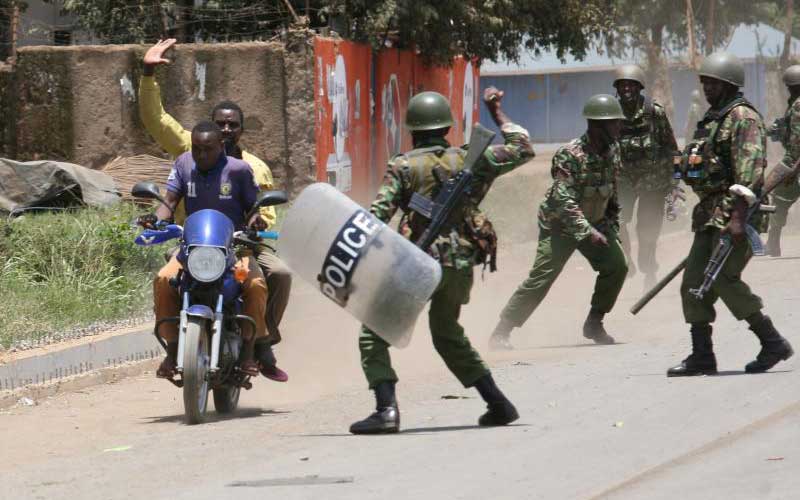×
The Standard e-Paper
Fearless, Trusted News

Police beat boda boda operators in Kisumu during a protest. Rights lobbies want police brutality stopped. [Denish Ochieng', Standard]
Human rights bodies have demanded that the government takes action on police involved in extra-judicial killings.